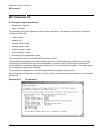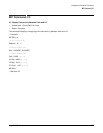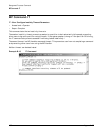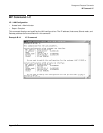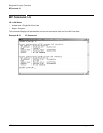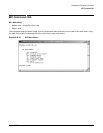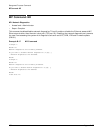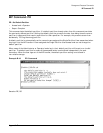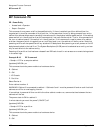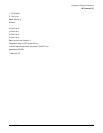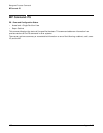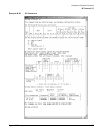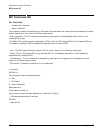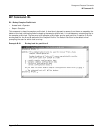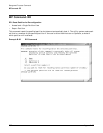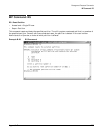
Appendix B
Management Processor Commands
MP Command: PE
196
MP Command: PE
PE - Power Entity
• Access level—Operator
• Scope—Complex
This command turns power on/off to the specified entity. If there is a default partition defined then the
targeted entity must be a member of that partition. In the case when the entity being powered is an entire
cabinet this command has some interesting interactions with the physical cabinet power switch. If the cabinet
power switch is in the off position then this command will not override the switch. That is, this command will
not turn on cabinet power if the switch is in the off position. If this command is used to power off a cabinet
and then the power switch is toggled from on to off then back to on, the cabinet will be turned on. Note that
powering on/off a cell also powers on/off any attached I/O backplane. Also powering on a cell powers on the I/O
backplane attached to that cell first. The System Backplane (HLSB) cannot be selected as an entity, and can
only be controlled via the cabinet entity.
Powering off a partition that has been released from BIB could result in extraneous error events being stored
in the event logs.
Example B-19 PE Command
• Sample 1: PE for a compute cabinet.
[spudome] MP:CM> pe
This command controls power enable to a hardware device.
B - Cabinet
C - Cell
I - IO Chassis
P - Partition
Select Device: b
Enter cabinet number: 0
WARNING: Cabinet 0 is connected to cabinet 1. Cabinets 0 and 1 must be powered off and on such that both
cabinets are off for an overlapping interval.
If one cabinet is powered off then on while the other cabinet remains on, communications between the two
cabinets will be lost.
The power state is ON for cabinet 0.
In what state do you want the power? (ON/OFF) off
[spudome] MP:CM>
• Sample 2: PE for a partition.
[spudome] MP:CM> pe
This command controls power enable to a hardware device.
B - Cabinet
C - Cell



